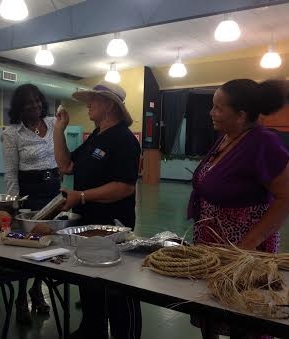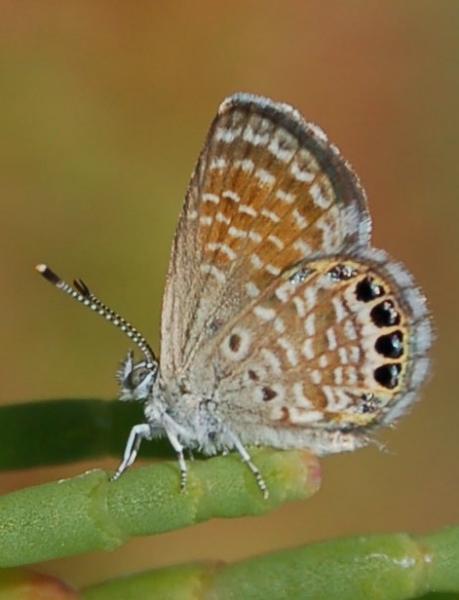Archive for December, 2013

Prisoners get certified as personal trainers
 (CNS): Four inmates from the country’s jail house have taken the cliché prison yard body building to a professional level after successfully completing a personal trainer certification course. They are now building portfolios of ‘clients’ from among their fellow prisoners as they pass on their skills in fitness. Richard Parsons, Sherlock Bodden, Robert Schultz and Robert Girvan were regulars in the gym, who volunteered when the opportunity for training arose earlier this year, said Prison Director Neil Lavis.
(CNS): Four inmates from the country’s jail house have taken the cliché prison yard body building to a professional level after successfully completing a personal trainer certification course. They are now building portfolios of ‘clients’ from among their fellow prisoners as they pass on their skills in fitness. Richard Parsons, Sherlock Bodden, Robert Schultz and Robert Girvan were regulars in the gym, who volunteered when the opportunity for training arose earlier this year, said Prison Director Neil Lavis.
Since August, the men pursued studies in 20 mandatory subject areas included first-aid and safety, muscle types, groups, muscles uses, heart rates and blood proteins.
Presenting the certificates this week, Lavis said that the three-month ExpertRating course isinternationally-recognized. The course format includes online lectures, discussions and practical exercises.
Northward’s Gym Supervisor/Instructor Steve Hansen said successful inmates were examined in detail throughout to determine their retention of the coursework.
“The syllabus covers all aspects of personal training, such as evaluating new clients, determining body types, demonstrating and explaining exercises, as well as developing tailor-made programmes,” he added.
It is expected that additional gym certification courses will be offered in the institution in the coming year.

UDP no longer ‘united’
 (CNS): The United Democratic Party (UDP) will be no more when the opposition party ratifies a change in its name at a planned party conference in the New Year, party officials said. The new Cayman Islands Democratic Party (CDP) has been registered under the Elections Law (2013 revision) as a political party and it will replace the UDP, which was formed in 2001 by the opposition leader and former premier, McKeeva Bush, when the infamous coup overturned Kurt Tibbett’s government and introduced the era of party politics. However, officials said Wednesday that the re-naming of the party was in response to public encouragement to modernize.
(CNS): The United Democratic Party (UDP) will be no more when the opposition party ratifies a change in its name at a planned party conference in the New Year, party officials said. The new Cayman Islands Democratic Party (CDP) has been registered under the Elections Law (2013 revision) as a political party and it will replace the UDP, which was formed in 2001 by the opposition leader and former premier, McKeeva Bush, when the infamous coup overturned Kurt Tibbett’s government and introduced the era of party politics. However, officials said Wednesday that the re-naming of the party was in response to public encouragement to modernize.
The UDP had a rough ride in 2013, starting the year with a cloud hanging over its future following the party split after Bush was arrested and charged on allegations of fraud, corruption and misconduct. A no confidence motion after his arrest in the LA saw the fall of the UDP government but five former UDP members retained the Cabinet under the People’s National Alliance banner until the general elections in May, sending Bush and three of his remaining UDP members to the crowded opposition benches.
The split did neither party any favours at the election, with Juliana O’Connor Connolly, who had served as a short term premier, being the only PNA candidate returned. After the election she joined the PPM when it won the majority of seats and accepted the offer from party leader, Alden McLaughlin, of the speaker of the House position.
The United Democratic Party was unable to win any seats outside of its stronghold base of West Bay and even lost one of the four seats there to Tara Rivers, who had run on the Coalition for Cayman platform but also joined the government and Cabinet.
Though she has not yet formerly joined the PPM, she has already made an appearance at the party conference.
Although the party has just three members, Bush is still the opposition leader with members Eugene Ebanks and party deputy leader, Bernie Bush, who share the opposition benches with the two independent members from the eastern districts, Arden McLean and Ezzard Miller.
With the party rebrand, McKeeva Bush will remain as leader of the CDP and leader of the opposition, while Bernie Bush also retains the deputy leadership of the new party.
Tessa Bodden remains as chair of the new party and Dr Joe Marzouca as deputy chairman, despite his position as the honorary consul for Jamaica. Renard Moxam has also been confirmed as the second deputy chair of the re-named party.
Bodden said the party has also renewed its constitution. That and the amended name were viewed as necessary by the party's General Council in response to overwhelming public encouragement to modernize and move forward.
Following the announcement, McKeeva Bush said he welcomed the opportunity for the party to continue the process of growing and addressing the needs of the people of the Cayman Islands.
U20 female strikers hit back of net in training match
(CONCACAF): Strikers Shanelle Frederick and Shanai Allen scored for the Cayman Islands National Under 20 women’s team in a 2-2 draw in the opening fixture of the overseas training camp. Playing against Golden Soccer Academy at Vizcaya Park, Frederick broke the deadlock in the 78th minute and Allen doubled the score in the 84th. In the final minutes, Cayman looked on course for victory, but two late penalties both scored by Nathalia Smith earned the home team the draw. The Cayman Islands team was on the pitch on Tuesday night against another local club before departing for Costa Rica today.
In San Jose, the national team faces the Costa Rica Under 20 team which Head Coach Joe Supe has pinpointed as a crucial gauge of the team’s readiness. The Cayman Islands is one of eight teams competing in the CONCACAF Women’s Under 20 Championships in Grand Cayman in January.

More issues surface over Euro chopper safety
 (CNS): The manufacturers of the Eurocopter have issued a worldwide safety alert to operators of its EC135 model, the type that crashed in Scotland last month killing ten people and the helicopter used by the RCIPS. According to a report posted yesterday on the BBC, the firm said the latest problems were with the low fuel level warning system that had been discovered in a number of aircraft. A spokesman for Eurocopter said EC135 operators in Europe found supply-tank fuel gauging errors that overestimated the fuel on board. The local police air support unit told CNS that the RCIPS is in regular contact with Eurocopter and further safety checks have been conducted and no problems have been found.
(CNS): The manufacturers of the Eurocopter have issued a worldwide safety alert to operators of its EC135 model, the type that crashed in Scotland last month killing ten people and the helicopter used by the RCIPS. According to a report posted yesterday on the BBC, the firm said the latest problems were with the low fuel level warning system that had been discovered in a number of aircraft. A spokesman for Eurocopter said EC135 operators in Europe found supply-tank fuel gauging errors that overestimated the fuel on board. The local police air support unit told CNS that the RCIPS is in regular contact with Eurocopter and further safety checks have been conducted and no problems have been found.
“The priority for all air operations is safety and the RCIPS continues to monitor closely the reports and various investigations for any directions from the manufacturer and other agencies. As such, recent enhanced safety checks were conducted and after the enhanced safety checks were done all systems were found to be working correctly and no issues were found,” a spokesperson from the Air Support Unit said via email on Wednesday. “The RCIPS continue to liaise closely with the Civil Aviation Authority of the Cayman Islands.”
According to the UK reports, Eurocopter said it was issuing a safety notice to remind all EC 135 operators to follow the safety procedures already in place and outlined in the flight manual, regardless of the aircraft's fuel quantity indication
"The first analysis shows that the indication of the fuel quantity in the supply tanks could be overestimated," the company said in a statement. "All crews should be aware that in the worst case a red warning 'Low Fuel' could appear without any amber FUEL Caution before."
There is no suggestion that this latest problem it is linked to the crash at a Glasgow pub on 29 November, when a Scottish police helicopter crashed into the roof of the bar killing the three crew members and seven people inside. Air accident investigators have already said that the aircraft did not run out of fuel. Bond Air Services, which operated the police helicopter, grounded its fleet of 38 EC 135s last week. The move came after an air ambulance, one of its 22 aircraft leased in the UK, was found to have a fuel indicator problem. Tests found others also had the same fault.
The company said it would "update its Safety Information Notice as needed" with investigations continuing.

Volunteers improve life for impounded horses
 (CNS): Volunteers from the Cayman Islands Equestrian Foundation teamed up with the Department of Agriculture (DoA) recently to build a new enclosure to house impounded horses. The DoA identified an appropriate lot of land within its Lower Valley compound and the CIEF volunteers cleared the area of rocks and brush and helped raise funds to construct housing. Creating a more comfortable environment for horses that are taken by the DoA because of trespasses private property or Crown Land or when lose animal strays into public areas and roads and when horses have been neglected and the owner of the animal is not known.
(CNS): Volunteers from the Cayman Islands Equestrian Foundation teamed up with the Department of Agriculture (DoA) recently to build a new enclosure to house impounded horses. The DoA identified an appropriate lot of land within its Lower Valley compound and the CIEF volunteers cleared the area of rocks and brush and helped raise funds to construct housing. Creating a more comfortable environment for horses that are taken by the DoA because of trespasses private property or Crown Land or when lose animal strays into public areas and roads and when horses have been neglected and the owner of the animal is not known.
“When the situation arises that a horse is impounded or is confiscated, it needs a comfortable place, with shade, water and food,” explains Assistant Director Brian Crichlow.
CIEF President Milly Serpell there was ‘surge of enthusiasm’ amongst her organisation’s membership to help address the plight of wayward horses. In response Secretary General Nicky Millward comments the Foundation held fundraisers, such as a Fun Show at its Equestrian Centre, and a screening of “The Lone Ranger”. It used the proceeds to purchase materials, and then constructed a fence as well as a covered area in the new paddock.
While there are usually no more than two horses impounded at any given time, unfamiliar horses do not usually get along together so CIEF has plans to construct a second enclosure next year. It is also hoping to contract the services of an equine vet, who would visit occasionally and supplement the work of the staff from the DoA and the St. Matthew’s University School of Veterinary Medicine. There are also plans to hold clinics for the benefit of horse-owners.
There are over 400 horses in the Cayman Islands. CIEF has 110 members – about half of which compete in local and overseas competitions

Teachers learn Caymanian culture
 (CTA): Teachers in the public school system became students recently, when they took part in a workshop at Red Bay Primary School focusing on Caymanian heritage, art and culture, produced by Cayman Traditional Arts. The workshop, which was held earlier this month, is the first in a monthly series. Its aim is to teach Cayman’s educators about various aspects of Caymanian culture, including the culinary arts, as well as arts and crafts. Vickie Frederick, principal of Red Bay Primary School, says the 30 teachers in attendance benefitted tremendously from the two hour session, given by instructors Rose May Ebanks and Donna Bryan.
(CTA): Teachers in the public school system became students recently, when they took part in a workshop at Red Bay Primary School focusing on Caymanian heritage, art and culture, produced by Cayman Traditional Arts. The workshop, which was held earlier this month, is the first in a monthly series. Its aim is to teach Cayman’s educators about various aspects of Caymanian culture, including the culinary arts, as well as arts and crafts. Vickie Frederick, principal of Red Bay Primary School, says the 30 teachers in attendance benefitted tremendously from the two hour session, given by instructors Rose May Ebanks and Donna Bryan.
“One direct outcome of this development workshop is the increased number of persons who will now have access to learning opportunities designed to strengthen the mission preserving Cayman’s culture,” she advises. “Each participant is now better able to help students and parents nurture a deeper appreciation for a heritage that defines and distinguishes the Cayman Islands.”
Chris Christian, who runs Cayman Traditional Arts, says the workshop complements the Heritage Arts programme that has been installed into the national curriculum for the 2013/2014 school year.
“Since September myself and our team of instructors have enjoyed teaching the brand new Heritage Arts programme to all year six students in the public school system,” he explains. “Students have so far been taught a variety of art and craft techniques, such as the art of rope making, as well as traditional Caymanian recipes including cassava cake. They then go on to apply their knowledge at various public demonstrations, including art shows and food events, interacting with the public and sharing what they have learnt.”
The Heritage Art and Culture workshop for teachers will be held monthlyfrom December 2013 until June 2014 and looks to grow in the new year as teachers from schools in Cayman Brac have also expressed an interest in participating from January.
For more information please visit https://www.facebook.com/pages/CTA-Cayman-Traditional-Arts/145070528867373

NCL to be in force January
 (CNS): The environment minister has said that the National Conservation Law passed in the Legislative Assembly on Friday with the unanimous support of the parliament should be implemented in January. Wayne Panton said that because the new legislation repeals the old Marine Conservation Law, regulations will have to be drafted to ensure that all of the species that were protected under that slide over to be protected under the new legislation. He said that officials should be able to complete that work and the amendments to the draft legislation in the New Year and pass the final law to Cabinet to approve the start day before the end of January.
(CNS): The environment minister has said that the National Conservation Law passed in the Legislative Assembly on Friday with the unanimous support of the parliament should be implemented in January. Wayne Panton said that because the new legislation repeals the old Marine Conservation Law, regulations will have to be drafted to ensure that all of the species that were protected under that slide over to be protected under the new legislation. He said that officials should be able to complete that work and the amendments to the draft legislation in the New Year and pass the final law to Cabinet to approve the start day before the end of January.
The changes made to the bill by the minister as well as those proposed and accepted by the independent members have also been released (see below) so the public can see where the draft, which was published prior to the debate, has been changed as a result of input from the public and from MLAs.
From the introduction of mandated open meetings, which was proposed by Panton, to the requirement for the Conservation Council to consult with the adjoining landowners wherever it designates conservation areas, which was put forward by the North Side MLA Ezzard Miller, there were more than 30 amendments put forward during the committee stage on Friday, which led to the minister achieving the full backing of the Legislative Assembly for the long awaited bill.
Some of the amendments were administrative, others more significant and some were made to give comfort to members and reassure them that the bill was not a 'land grab', as had been suggested during the debate.
The word "acquired" was change to "purchase" in relation to government buying land to set aside as a conservation area, which was of particular concern to Miller, who had challenged the minister to back his position that government would not use the acquisitions law to force land sales by changing the word — a challenge which Panton met.
Controversy has arisen, however, over two changes to the law. Efforts by the minister to reduce the use of spear guns were thwarted by a back-bench rebellion on the importation of parts for existing spear gun licence holders. This, however, will not only delay the eventual ban on spear guns in local waters, it will also clash with the customs law, which prevents the importation of spear gun parts, even by Caymanian license holders.
The removal of the clause that required someone caught in a marine park with conch and lobster to explain where they got them will continue to tie the hands of enforcement officers as they will still not be able to arrest people unless they catch them in the water with the catch in their hands. This is now at odds with a major concern raised by the public, not just during the recent round of public meetings but for years, that enforcement officers need to catch poachers.
However, regardless of the two issues which may cause problems down the line, Department of Environment Director Gina Ebanks-Petrie, who has been pressing for the law almost as long as she has been working for the department, was pleased that the legislation was now passed. The minister too expressed his delight at the support he was able to gain from the House.
See all of the amendments below, along with the draft legislation for ease of reference.

CUC to cut January bills 2% from insurance payment
 (CNS Business): Grand Cayman’s power company is reducing the fuel cost rate on its customers' January bills by less than 1 cent as a result of an extra pay-out from its insurers of just under US$1 million in relation to its generator failures in 2011. CUC said the money would be refunded to consumers via the fuel charge next month reducing bills by just 2%, with the cut in the fuel cost charge from CI$0.2202 per kilowatt hour (kWh) to CI$0.2142. The Electricity Regulatory Authority (ERA) said that even though it was only a small amount and would not have a significant impact on reducing bills, the recovery of the money demonstrated how the electricity regulatory framework was able to provide benefits to customers. Read more on CNS Business
(CNS Business): Grand Cayman’s power company is reducing the fuel cost rate on its customers' January bills by less than 1 cent as a result of an extra pay-out from its insurers of just under US$1 million in relation to its generator failures in 2011. CUC said the money would be refunded to consumers via the fuel charge next month reducing bills by just 2%, with the cut in the fuel cost charge from CI$0.2202 per kilowatt hour (kWh) to CI$0.2142. The Electricity Regulatory Authority (ERA) said that even though it was only a small amount and would not have a significant impact on reducing bills, the recovery of the money demonstrated how the electricity regulatory framework was able to provide benefits to customers. Read more on CNS Business

CJ considers sex crime case
(CNS): The crown’s application that a controversial sentence in a sex crime case was unduly lenient was heard Tuesday by Cayman’s Chief Justice Anthony Smellie, who is now considering whether the man who molested his daughter when she was 8 years old will need to return to jail in the New Year. The defendant, who cannot be named because of the danger of identifying his victim, was released from prison last Friday after serving just six months in jail. He pleaded guilty earlier this year to six counts of sexual assault of his child, which had occurred on four separate occasions. He was sentenced by the chief magistrate to nine months with three months suspended, and the crown's position is that the magistrate got it wrong.
Arguing the Summary Court appeal on behalf of the director of public prosecutions, crown counsel Michael Snape told the court that the appeal had been submitted six days after the sentence was delivered but because of the backlog of cases in the courts it had been adjourned twice and so the defendant had already left HMP Northward on 13 December.
Nevertheless, Snape argued that the double jeopardy principle should not necessarily apply as the West Bay man had known from the start that the crown had appealed the sentence and that he should not be allowed to benefit from administrative constraints in the justice system.
Presenting his argument to the chief justice, the public prosecutor said that while he believed the magistrate had started correctly based on the guidelines, with an 18 month sentence for the most serious of the charges, she had failed to show how she had increased that as a result of the various aggravating factors in the case, such as the age of the victim, the breach of trust and the repetition of the offending, before she dealt with the various mitigating factors in the case. Snape said that in her sentencing decision she has not fully explained how she arrived at such a low point and also appeared to give excessive credit in mitigation twice over.
The lawyer argued that the magistrate had failed to consider the totality of the sentence when she ordered all of the sentences handed down for each crime to run concurrently. He submitted that either the 18 months should have increased much more before any discounts were given in mitigation or that the sentences should have been concurrent to reach a more suitable total jail time, given the seriousness of the crime and the need not just to deter the defendant but others too.
“I appreciate this was not an easy sentencing exercise as the guidelines are not precise in terms of totality,” he said. “But what the learned chief magistrate needed to do was either consider all the counts individually and impose consecutive sentences, which could have been reviewed against the totality principle to ensure that the result was not a crushing sentence, or run the sentences together after she had properly taken into account on the lead charge the full range of the offending,” Snape explained.
He said that in effect the offender had been sentenced as though there was just one charge in which only the very basic elements of a sex crime had been made, with no aggravating features considered, resulting in the unduly lenient sentence.
The defendant had been charged with a list of abuse over several months, including touching his daughter with his penis, touching her genitalia, which was considered the most serious and lead count, and making her watch pornography as he masturbated and ejaculated on her, as well as making her touch him.
Given the charges, the sentence shocked the community and led for a call from local activist Sandra Catron for a minimum sentence for all sexual assault cases. This in turn led to a private members motion being tabled in the Legislative Assembly last month by Bodden Town MLA Anthony Eden arguing for government to consider a minimum five year term for sex crimes. The motion was supported by the entire parliament and government is now mulling legislation to address the issue.
Ben Tonner, local defence attorney from Samson McGrath who represented the defendant, said that the chief magistrate was entitled to pass the sentence. He said she had noted her consideration of the aggravating features in her decision, even though she was not explicit in how much she had increased the starting point before reducing because of mitigation and then the discounts for the defendant’s guilty plea and full cooperation.
Tonner said it would have been helpful if the magistrate had explicitly stated how much she had increased and then decreased but it was a complicated case. It was clear, he argued, that she had all of the circumstances in mind. The defence lawyer said that while there were aggravating factors, there was a list of very powerful mitigating ones which the magistrate had to consider.
He explained that his client’s offending had taken place three years before and had ceased long before the case came to the authorities. During that time the defendant and his daughter, who is now a teenager, had taken steps towards repairing their relationship. The defendant had voluntarily sought counselling before charges were brought. At the sentencing hearing his sister submitted a letter to the court outlining the defendant’s own exposure to sexual abuse in the family from a very young age and outside of the family when he was a teenager.
The victim had also pleaded with the magistrate not to send her father to jail as he handed up letters to the judge from the defendant and his children.
Tonner argued that the magistrate had fairly given weight to mitigation, including his client’s admissions, conduct, character and the risk of repetition. He also pointed the judge to the law about sentencing appeals and warned that the court can only increase what are defined as unduly lenient sentences and not because it thinks the sentence is less than another judge may have applied. Tonner argued that even if the chief justice found that the sentence was unduly lenient, he still had discretion given all of the other considerations. He added that sentencing is an art rather than a science.
“Leniency is not a vice,” Tonner said. “Mercy is soundly based in law.”
He concluded that the magistrate did not err in principle and she had worked through the aggravating factors and mitigating features and applied them in the sentence she arrived at, “which was entirely within her discretion,” he added.
During Tonner’s submissions the defendant wept openly in the court and hung his head in his hands throughout.
The CJ stated that he would reserve his decision until 10 January and as a result of the defendant’s recent release from jail, he was bailed with a surety of $5,000 to reside at his mother’s residence. While he was allowed to contact his daughter, as they are currently in joint counselling, he said he could not be with her without another adult being present.

Inmate accuses prison officers of supplying ganja
(CNS): An inmate from HMP Northward pointed the finger at prison officers as the source of drug smuggling at the country’s jail when he pleaded guilty in Summary Court Tuesday to possession of a small quantity of ganja. Leighton Rankine (37), who is convicted of a firearms offence, received an additional 30 days on his 13 year sentence when he admitted to having around half an ounce of thedrug concealed in his glasses case. The drugs were discovered by prison staff when they escorted him to the hospital for medical treatment in August. Following his plea to the charge, when asked for an explanation he implied that the drugs had come from prison officers.
“When the officers stop smuggling it in to the jail and stop selling it to the prisoners, then we will stop smoking it,” he said.
Noting that there was no evidence before the court to support his claim, Magistrate Kirstyann Gunn said that regardless of the source of the ganja or how it became available to him, Rankine still had a choice whether to use the drug or not and he had opted to have it in his possession. Giving him credit for his guilty plea and noting that it was his first offence of this nature in the prison, she said the fact that it was found on him while he was serving a prison sentence was an aggravating factor.
The magistrate said that the level of smuggling and use of drugs in the local prison was a serious concern and as a result there was a need to deter other prisoners as well as Rankine from using the drug in jail as it undermined the rule of law. Handing down her sentence, she added thirty days to Rankine’s current thirteen years, which he received in connection with a shooting outside a West Bay Road night spot.
Rankine, who is a father of four, was accused and convicted on counts of assault, wounding with intent, unlawful use of a firearm and the possession of an unlicensed firearm after a trial in June. The charges related to a fight and then a shooting in the area of the Grand Pavilion parking lot. He escaped an attempted murder rap because the judge decided that he had not intended to kill anyone when he opened fire in the car park during the altercation.
Meanwhile, a second inmate serving time for robbery, who was charged over possession of a much larger quantity of ganja, pleaded guilty but claimed he knew nothing about the drug found in his cell, which he shared with others.
When Jonathan Welcome gave his explanation over the discovery of three packages of ganja in his possession, Magistrate Gunn pointed out that if that was the case he must plead not guilty. However, Welcome was insistent that he take the wrap for the drugs. He said he just wanted to get it over with because he did not want to come back to courtand asked the magistrate to sentence him.
Given the legal implications, however, Gunn ordered the matter to be placed before another court in order to deal with the issue afresh.